A Chinese in the German Wehrmacht
- By Peter Harmsen
- 16 February, 2014
- No Comments
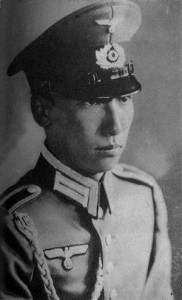 When the German Wehrmacht rolled into Austria in March 1938, one of its soldiers stood out. The 21-year-old sergeant-cadet in the 98th Jäger Regiment had jet-black hair, and his features were distinctly Asian. His name was Chiang Wei-kuo, and he was the adopted son of China’s ruler Chiang Kai-shek.
When the German Wehrmacht rolled into Austria in March 1938, one of its soldiers stood out. The 21-year-old sergeant-cadet in the 98th Jäger Regiment had jet-black hair, and his features were distinctly Asian. His name was Chiang Wei-kuo, and he was the adopted son of China’s ruler Chiang Kai-shek.
Chiang Wei-kuo was the biological son of Dai Jitao, one of Chiang Kai-shek’s closest associates, and Dai Jitao’s Japanese mistress. Chiang Kai-shek had agreed to adopt him at the age of three and since then he had treated the boy with great affection, not least because of his good looks.
From 1934 to 1936, Chiang Wei-kuo studied physics at Dongwu University in the east Chinese city of Suzhou, while also enrolling in a program for reserve officers. This ended in September 1937, when Chiang Kai-shek, who at the time had strong pro-German sympathies, sent him off to Germany for advanced military training.
Chiang Wei-kuo became a student at the Kriegsakademie, or War Academy, in the south German city of Munich. It was in his capacity of a cadet at this institution that he found himself on a German truck crossing the Austrian border in the early hours of March 12, 1938.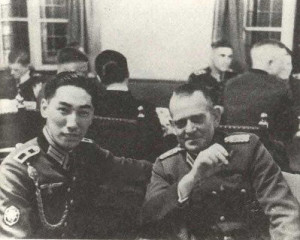
There was no fighting, as the union with Germany was generally welcomed by the Austrians. Instead, Chiang Wei-kuo and other officer candidates ended up commanding Austrian army units as they were incorporated into the Wehrmacht, according to Jay Taylor, the biographer of Chiang Wei-kuo’s stepbrother Chiang Ching-kuo.
After Austria, next up for the German army was the occupation of the Sudetenland, the largely German-speaking part of Czechoslovakia, in October 1938. Chiang Wei-kuo did not participate, even though he later admitted he would have liked to, Jay Taylor writes in his biography.
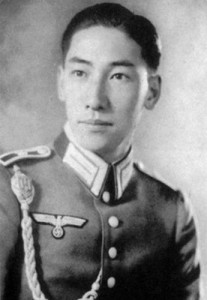
Chiang Wei-kuo as a student at the Munich war academy. The lanyard is an award for excellence in marksmanship.
Chiang Wei-kuo graduated in the summer of 1939, just weeks before the German invasion of Poland, which was to trigger World War II in Europe. He was instructed by the Chinese authorities to attach himself as an observer to a German division lined up along the Oder River, near the Polish border.
“But,” Jay Taylor writes, “to his regret, Wei-kuo missed the opportunity to ride along on the invasion of Poland. On the way to the border, he traveled through Berlin and reported to the Chinese embassy. There he received new orders. He was to travel to the United States for training.”
Chiang Wei-kuo initially enrolled at the Army Air Corps School in Alabama, but once the US top brass understood he had received training in Germany, already recognized as a leader in tank warfare, he was sent to the Armored Force Center at Fort Knox.
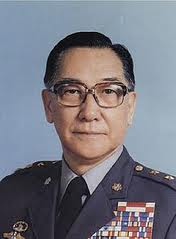
Chiang Wei-kuo in the post-war Taiwan military
Chiang Wei-kuo returned to Asia in late 1940 and subsequently led armored troops in the war against Japan. After victory in 1945, he was also a participant on Chiang Kai-shek’s side in the civil war with the communists. When that conflict ended in defeat for Chiang Kai-shek in 1949, Chiang Wei-kuo was among the soldiers following him to Taiwan. Chiang Wei-kuo would continue to play a role in the island’s military and politics into the 1990s, although he was increasingly marginalized.
As more than just a curiosity, long after the end of World War II, Chinese again received military training in Germany. In the period from 1964 to 1972, a total of 18 high-ranking officers from Taiwan went through a one-year staff training course in Hamburg at the General Staff College of the post-war German military, the Bundeswehr.
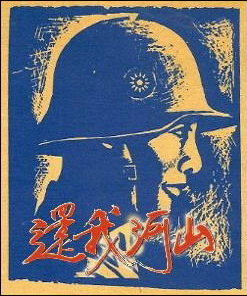


 Copyright © 2025
Copyright © 2025
Leave a Reply